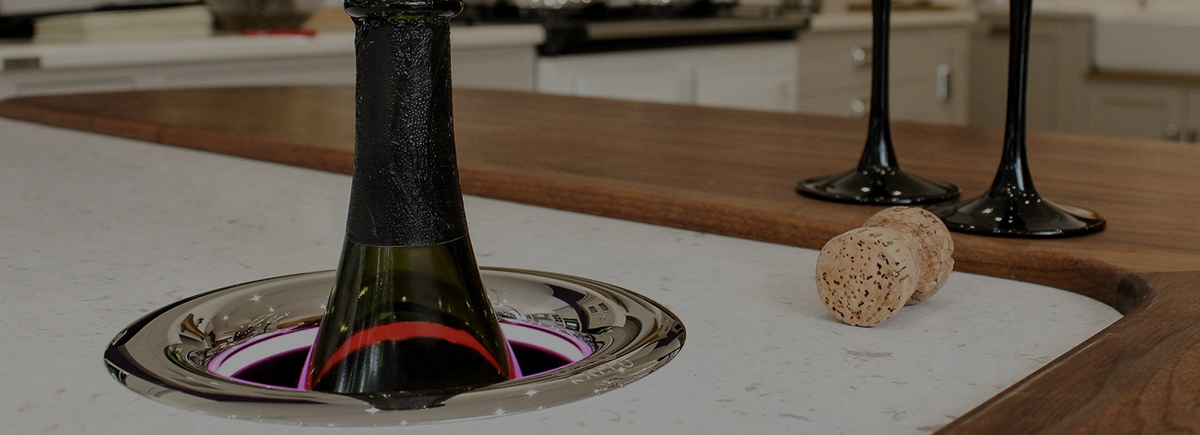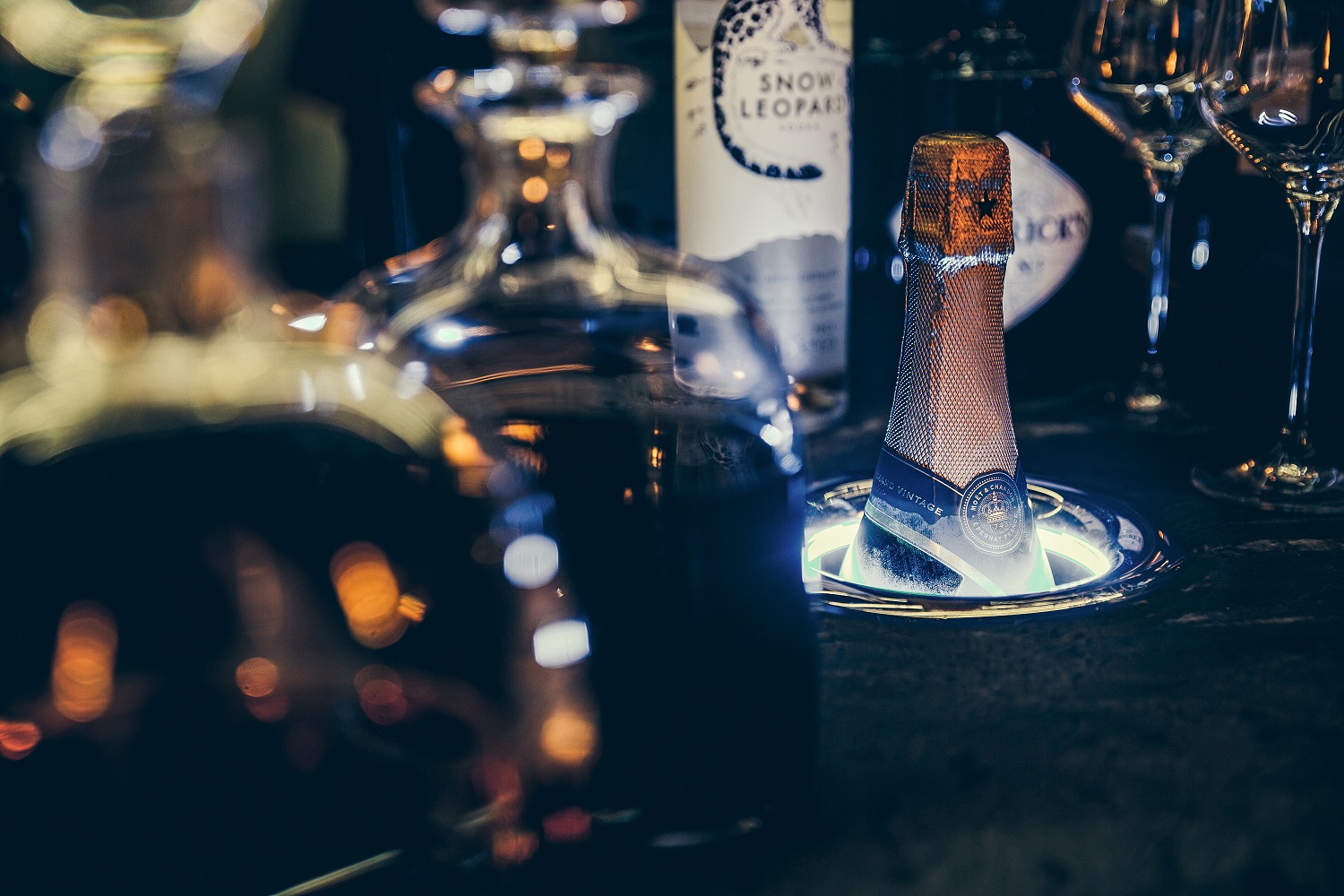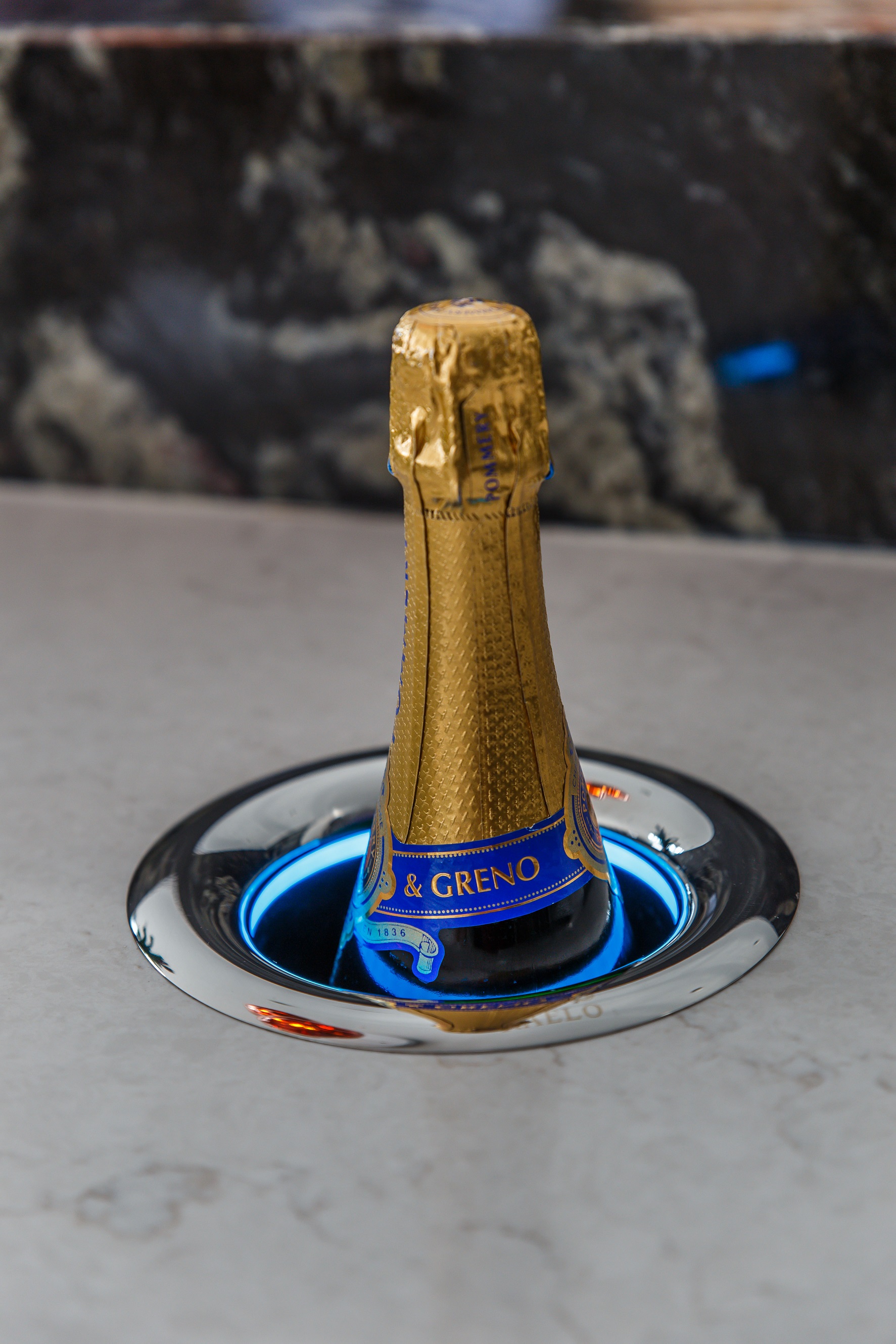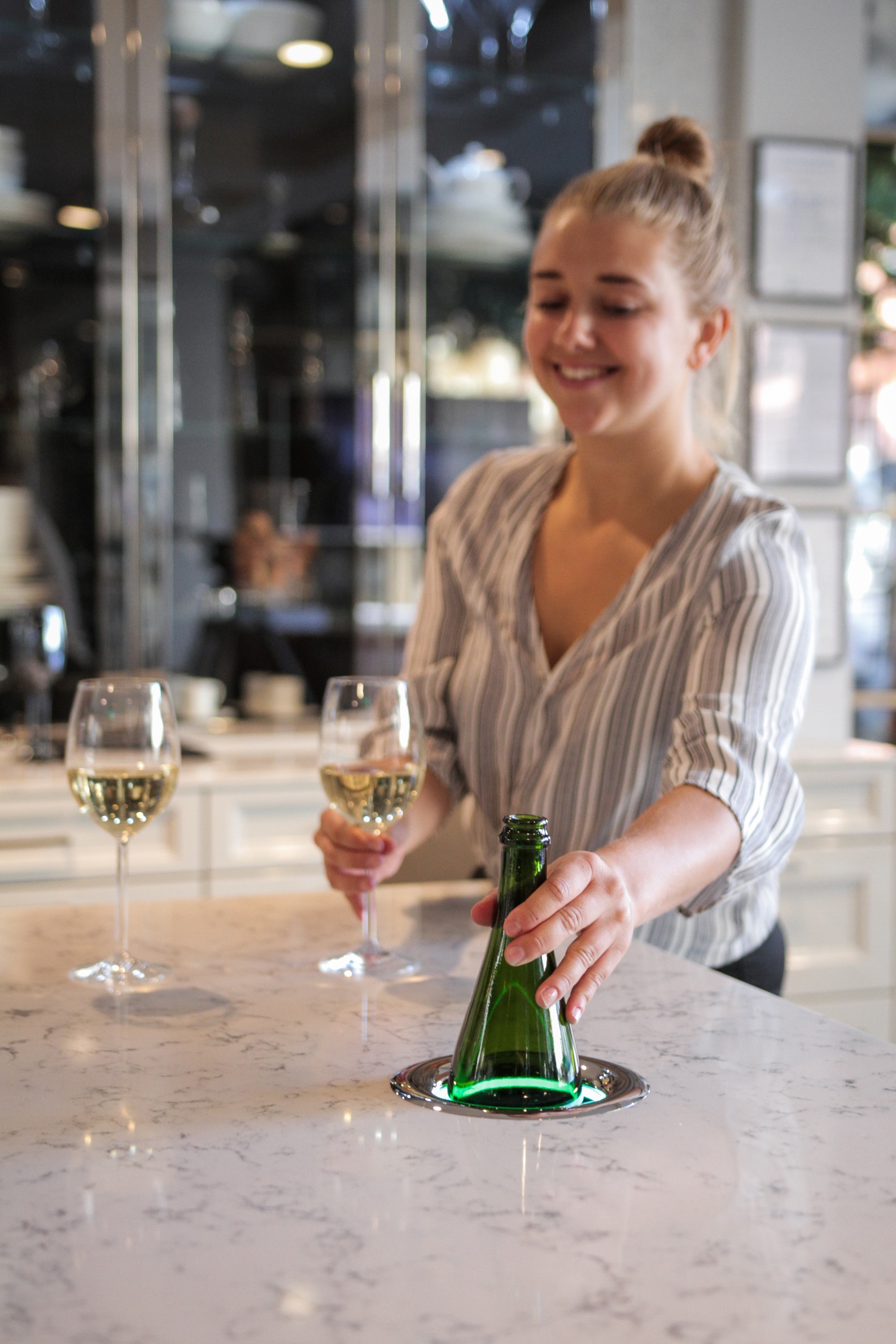After hitting upon a solution to one of life’s irksome problems, inventor Kevin Jabou turned to Omega Plastics Group to help refine his product to make it feasible and affordable to a larger audience.
After hitting upon a solution to one of life’s irksome problems, inventor Kevin Jabou turned to Omega Plastics Group to help refine his product to make it feasible and affordable to a larger audience.
They say that every good idea starts with a problem. In the case of inventor and entrepreneur, Kevin Jabou, that problem was a dripping wine bottle from an ice bucket. After years of testing various prototypes, Kevin eventually landed on a solution which, in his words, would provide people with a “seamless experience for serving wine”.
When Kevin first thought about creating Kaelo he wanted to build an effortless and beautiful product that performed its primary function, which is maintaining a constant wine temperature extremely efficiently, completely dry, and yet still delivered the wow factor.
Kaelo was launched in 2016, using a patented dry-cooling system, previously only used by innovators in the medical sector and the military, to maintain the temperature of a bottle of wine, once opened, to within 1-2 degrees of its original temperature. Whilst enjoying great success across residential, commercial and marine markets, Kevin’s next phase was to make the product more accessible to a wider audience so that the Kaelo would become a must-have item in every modern kitchen.
Hand-built in a range of luxury finishes, the cylindrical design of Kaelo, combined with the high levels of tech, meant that engineering the parts was going to be both tricky and expensive.
Omega Plastics Group (OPG) were invited on board to help Kaelo reduce the costs of its manufacturing process whilst not compromising the products seamless design.
The product was in its very early stages of design when Omega Plastics Group were first introduced to Kaelo, CAD data was available, and a significant amount of work had been inputted into the project up to that point but the various products which make up the final assembly were not feasible to progress into tooling and volume manufacturing.
The plastic products replacing the handmade products had challenging guidelines which were;
• Must mirror the strength of the current components and assembly.
• Must incorporate smart technology and maintain its seamless appearance.
• Must integrate into any surface or furniture.
• Must be manufactured and mass produced in the UK.
• Ensure unit costs that allows the product to be attractive to the mass market.
Over a period of 6 weeks and utilising the full knowledge of the technical team at OPG, we developed the products through the process of Design For Manufacture (DFM) which highlighted improvements that could be made to the design. This process enabled us to work closely with the development team at Kaelo to ensure we arrived at a mutually beneficial product design through a process of suggestion and agreement.
This in turn progressed into the design and manufacture of bespoke P20 tools which had encompassed the whole spectrum of engineering knowledge from OPG and the Kaelo team. The tooling package consisted of 5 single impression P20 tools that were commissioned and manufactured over a time scale of 10 weeks, and the tooling material selection was based on estimated product volume requirements which is crucial to the longevity of the program.
Throughout the sampling process other areas of development arose particularly with material selection. It was found at Brace T1 that the originally selected material was not sufficiently strong enough to support the assembly requirements. The experts at Omega Plastics Group suggested an alternative material, remoulded, inspected and validated the improvements regarding fit and function to prove the new materials success.











